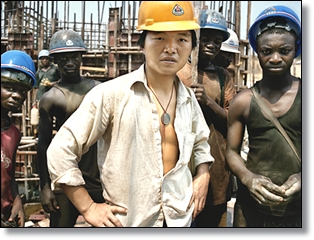China Inroads Call for Quality Leadership in Africa

 |
| Is Africa ready for external inroads? Photo courtesy |
Africans ought to assess the economic cost of poor political leadership and weak governance institutions. Bickering and short term focus of our leaders in the 17th century made it easier for a combined onslaught of Belgium, France, Germany, Italy, Portugal, Spain and United Kingdom to subjugate the continent formally in 1885. Positively, one may argue it awakened Pan African sentiments. Negatively, it's responsible for subsequent plunder of resources, and power games that ride roughshod on the continent.
According to The China - Africa Trade and Economic Relationship Annual Report for 2010; China has moved from a modest partner that gave a grant of 26 million Swiss francs to Egypt in 1956 to a leading trading partner in the entire continent with bilateral trade of over $118 billion.
China, treats Africa as one; a novel approach to the continent different from that of European powers that have sustained mirror images of themselves through Anglophone, Lusophone, francophone and Spanish. The China – Africa report indicates that between 2002 and 2009, Chinese investment in Africa increased from $220 million to $1.44 billion; curiously, Africa's investment in China increased from $280 million to $1.31 billion. The report further states, by the end of 2009, 50 Africa countries had made investments in 4,269 projects in China. Mauritius is named the biggest Africa investor in China followed by South Africa, Nigeria, Egypt, Namibia, Tunisia and Seychelles.
Of interest to me was the framing of Africa as an investor in China, complete with detailed measurements and specific zones where African investors are located namely; Guangdong, Shanghai, Zhejiang, Jiangsu, Tianjin and Shandong. Shuttling back and forth in history, the Chinese have avoided the western approach of targeting to "help" Africa and instead focused on Chinese interests coated with friendship instead.
Another curious aspect in the Chinese annual report is the repeated usage of the term, "friendship," "unity" and more importantly "observe." The Chinese claim to have focused to gain experience and knowledge from Africans and even observed technologies of Egypt, Algeria, Morocco and Ghana. Is there something that Africans can glean from these words? The "kiondo" traders and wood carvers will testify that when a Chinese does the observation; a million kiondos are reproduced in China.
The Europeans amalgamated the once thousands of ethnic nations into 50 nation - states; the entry of China into African affairs may result into one giant Africa. The Forum on China - Africa Cooperation (FOCAC) 2010 – 2012 strategic plan gives a glimpse at this eventuality. Staring at the future, if Europeans created nation states to drive their own interests; Africans should not assume that the Chinese want a giant Africa for Africans' sake.
Africa must urgently change its language of political leadership and governance discourse. Two powers have their tentacles deep into the sinuses of the continent; the West in "software" and China on "hardware." Africa cries for leadership that can comprehend the forces sweeping across the continent and prepare the people to engage and domesticate them. Investment in ethnic interests, denies the continent the much needed valuable time and resources to prepare for a new Africa.
By James Shikwati
The author james@irenkenya.org is Director of Inter Region Economic Network.
